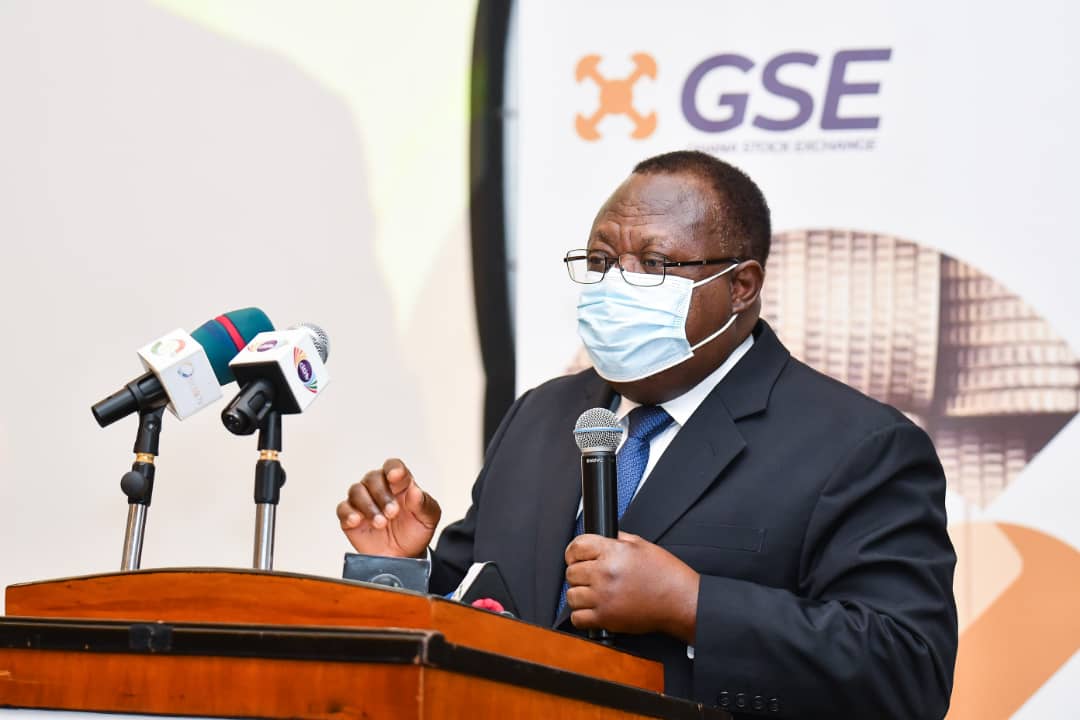
Locals miss out on booming stock market
THE Ghana Stock Exchange (GSE) is back to winning ways but few Ghanaians and local firms are profiting from the higher returns that the bourse gives to investors.
The exchange returned 43.66 per cent to equity investors in 2021, breaking a three-year run in the red that was deepened by the COVID-19 pandemic.
The Ghana Fixed Income Market (GFIM) also witnessed strong growth, jumping by 92 per cent in 2021 over the 2020 close.
But even in its glorious days, not much of the returns benefit locals. Majority of the value created from the stock exchange is held by foreign investors, with locals being on the fringes.
Foreign dominance
Data from the GSE show that only 31 per cent of the market’s value in the equity market is held by local investors, leaving the almost 70 per cent stake in the hands of foreigners.
The Managing Director of the GSE, Mr Ekow Afedzie, said the development was concerning, as a lot of the value was being repatriated.
“Most of you sat somewhere, not looking at this market. People made as much as 270 per cent, 100 per cent and 70 per cent on this market last year.”
“We are sitting here and the guy in the United States of America, Hawaii or China sees that he can make a lot more money on our market but locally, we are not looking at our market,” Mr Afedzie said in a maiden quarterly interaction with the media last week.
“You saw the returns that investors made. What it means is that these foreign guys made these fantastic returns yet our own people did not,” he said, noting that it had to change for more Ghanaians to benefit.
Following its performance, the GSE was rated the teh second best in Africa last year.
Invest, not bet
Mr Afedzie blamed the development on low investor education and financial literacy in general but expressed the hope that an aggressive investor education that the exchange was embarking on would help change the development.
“The youth are the people we should target this year. They need to cultivate an investment culture and move away from betting.”
“They want to get it quick and so, even if they get their fingers burnt, they still go ahead but we need to discourage that,” he added.
Market indices
Meanwhile, the GSE MD attributed the impressive run of the Accra bourse in 2021 to the turnaround in the economy, following the malaise the COVID-19 pandemic imposed on it.
He said the Financial Index gained 2,151.85 basis points (bps), representing a per centage change of 20.7 per cent.
The total market capitalisation, which is the market value of all the companies listed, also went up by 18.61 per cent from GHȼ54.4 billion in 2020 to GH¢64.49 billion.
The total value of traded shares, however, went down by 7.3 per cent to GHȼ533.27 million, with total volume traded also dipping by 30.03 per cent to 486.59 million.
The GSE MD said the impressive performance was underpinned by the positive investor confidence, fuelled by strong earnings and low share prices.
On the bond market, he said it also recorded its best performing last year since it was launched in 2015.
He said total bonds and notes traded increased by 92.62 per cent to GH¢208.81 billion in 2021.
Gainers and losers
The GSE data showed that Fan Milk Plc was the biggest gainer in 2021, with its share price rising by 270.37 per cent.
It was followed by Benso Oil Palm Plantation and Enterprise Group, which had their share prices increase by 232.50 per cent and 99.29 per cent respectively.
Societe Generale Ghana Plc, Total Petroleum Ghana, and Ecobank Transnational also had their share prices gaining by 87.5 per cent, 77.39 per cent, and 75 per cent, respectively.
This was followed by Scancom Plc. (MTN Ghana), Republic Bank Plc, GCB Bank, CAL Bank Plc, Standard Chartered Bank, Goil Company, and Ecobank Ghana Plc, which gained 73.44 per cent, 46.34 per cent, 29.38 per cent, 26.09 per cent, 24.46 per cent, 21.33 per cent, and 5.56 per cent, respectively.
On the reverse, the Cocoa Processing Company Plc led the list of losers after suffering a 33.33 per cent price decline.
It was followed by Unilever Ghana Limited, which also saw its share price fall by 28.95 per cent. Access Bank Ghana Plc, Mega African Capital Plc, and Aluworks Plc, also saw their share prices decline by 28.25 per cent, 9.87 per cent, and 9.09 per cent.